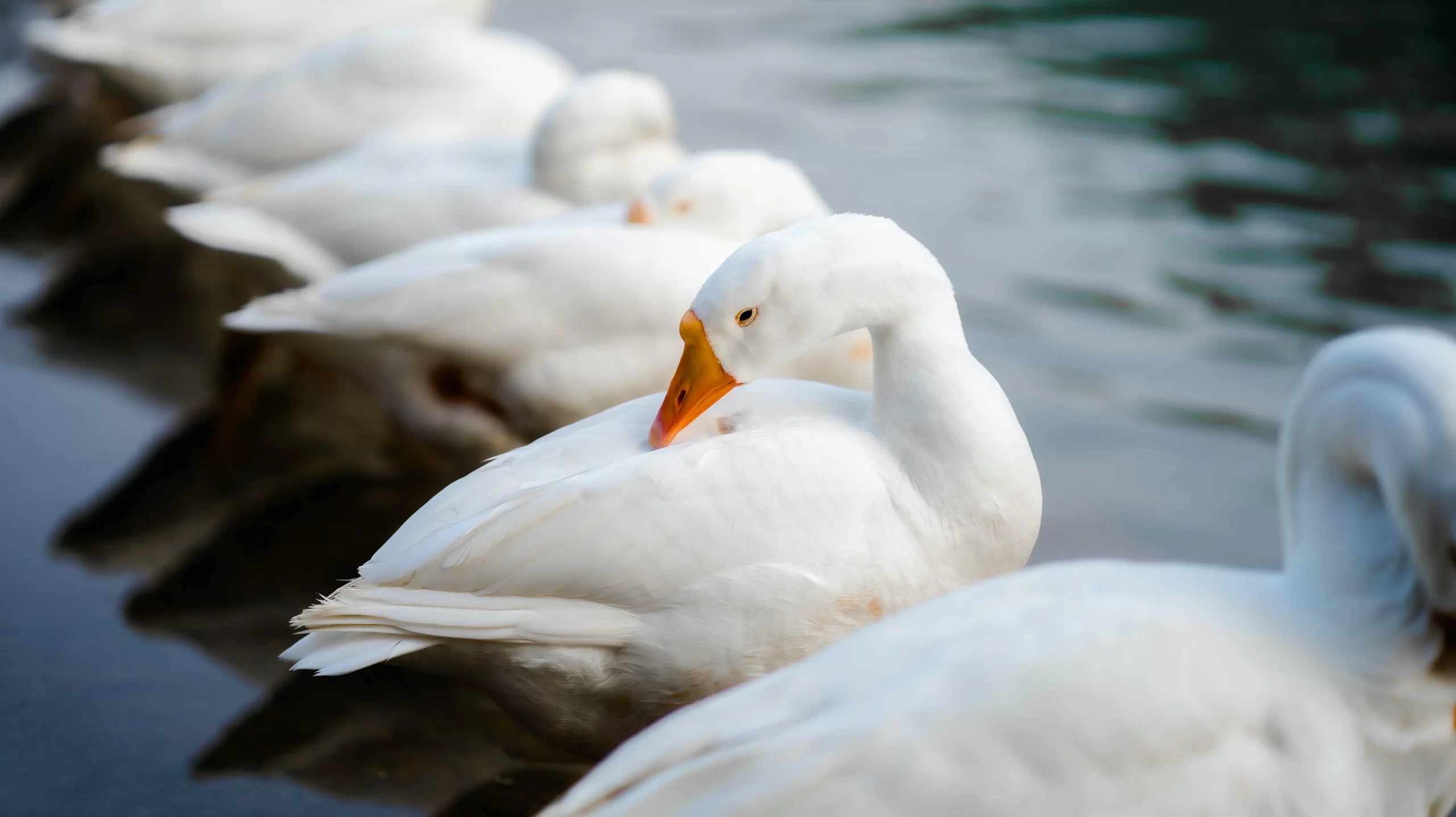Many goose species are experiencing population surges like never before thanks to the intense modifications that humans have made to landscapes. Nevertheless, life as a goose can be stressful, as hunters and predators are constantly trying their best to devour these creatures. So, how do geese sleep in spite of these challenges? Moreover, where do geese sleep at night to avoid predators?
Well, I will be discussing goose sleep and more within this comprehensive guide. Those interested in knowing about wild goose slumber will come away from this article with a keen understanding of this topic. So, read on to learn about how and why geese behave in the ways that they do when they’re preparing to sleep.
Table of Contents
Where Do Geese Sleep?
Those familiar with birds know that their sleep is much different compared to human slumber. For instance, birds do not tend to sleep for long, continuous bouts like humans. We’ll discuss the reasoning for this soon, but first, you may be curious to know where geese go to sleep when it comes time to rest. So, where do geese sleep?
Geese are quite adaptable, being able to sleep in various locations and habitats. These birds may sleep in aquatic ecosystems such as marshes, lakes, or ponds, but they may also sleep in agricultural fields, golf courses, tundra, and other open habitats. Overall, the adaptable nature of these birds allows them to sleep in many locations.
Now that we know more about the question, “Where do geese sleep?” let’s determine where a sleeping goose can be found when it’s a baby.
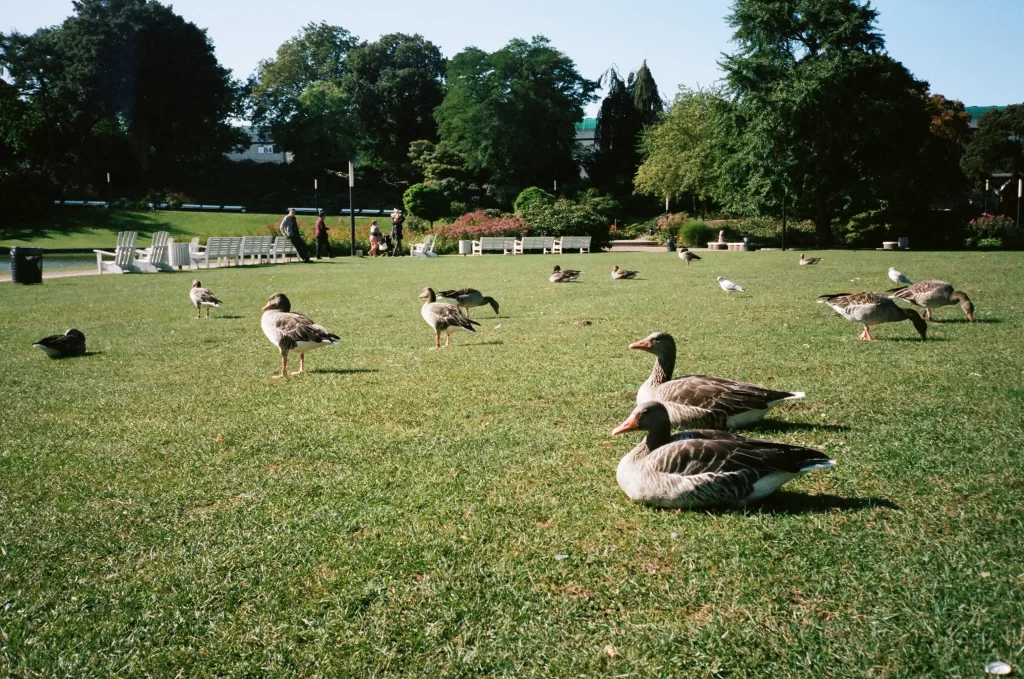
Where Do Baby Geese Sleep At Night?
Although mature geese can easily sleep in an assortment of locations, the babies do not have the same flexibility when it comes to choosing where they sleep since goslings cannot fly until they’re a couple of months old. So, where do geese sleep at night until they learn to fly?
Well, goslings will sleep in their nest for the first few days after they’ve hatched from their eggs. Afterward, they will follow the adults around and sleep in very close proximity to them. This provides the baby geese with some protection during the night, as they are commonly targeted by predators.
When Do Geese Sleep?
Geese are active birds that must remain constantly vigilant throughout the day. All of this activity and observation surely makes these birds tired, so when do geese sleep?
The timing in which geese sleep is a bit different than how humans sleep. Whereas humans often sleep throughout the night and are active during the day, geese seem to sleep whenever an opportunity arises. Therefore, if the conditions for sleep are favorable, they may sleep at any point during the day or night.
Although geese are opportunistic sleepers, there are a few times in which they are more likely to sleep than other times of day. Of course, geese try to sleep at night when possible, as their other activities are largely limited during this time. Additionally, geese may take an afternoon nap in between bouts of morning and evening foraging.
We’ve now talked about where and when geese sleeping may be observed, so now let’s discuss the specifics of goose sleep – how do geese sleep?
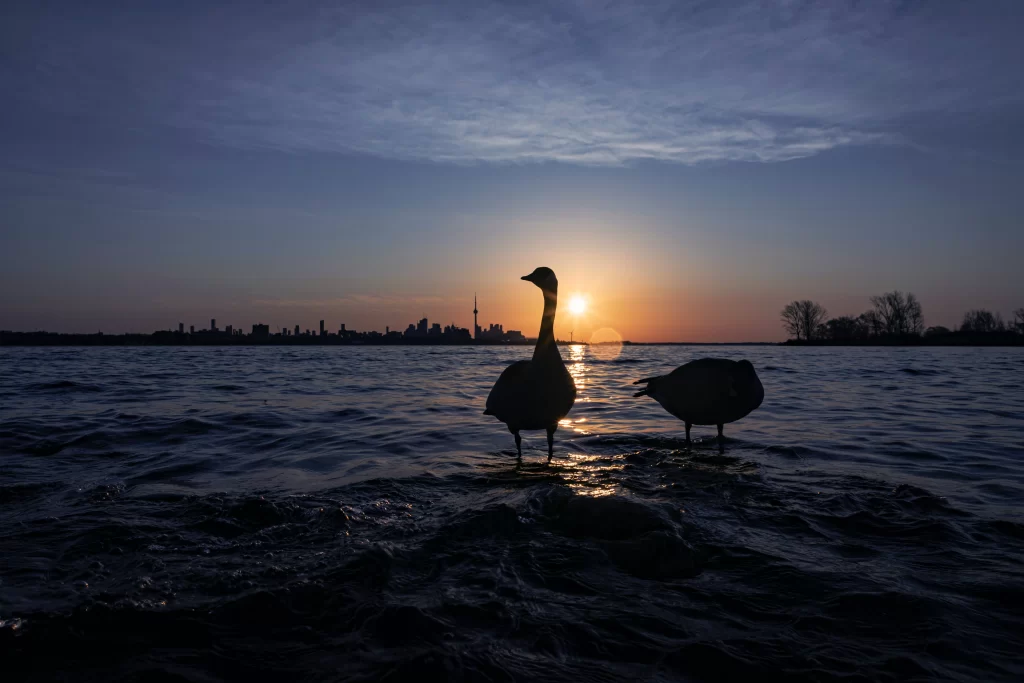
How Do Geese Sleep?
Humans are not the only creatures who think geese make for a tasty meal. Indeed, dozens of predators would love to dine on a goose at any chance that they get. Considering the need to be constantly on the lookout for danger, how do geese sleep at all?
Well, geese certainly reap the benefits of being social birds, as this dynamic allows for good communication and effective predator avoidance for these birds. Geese almost always sleep in the company of other geese, and this allows for plenty of birds to watch for any potential threats. This collective presence allows individual birds to receive plenty of sleep.
Now, it is important to note that goose sleep differs from human sleep. Whereas humans can lie down and sleep uninterrupted for hours, geese do not have this luxury. They have therefore had to adapt and adopt a sleep schedule that fits their lifestyle. This means that geese tend to sleep by snoozing for a few minutes and waking up before going back to sleep for a few more minutes.
This cycle plays out throughout the time in which they’re resting. Such sleep may not sound effective or restful, but geese have learned to thrive using these methods. Moreover, such tactics substantially improve their chances of surviving to live another day.
Do Geese Sleep On The Water?
Geese often fly around during the day and into the night. Although we cannot see them when they fly overhead in the darkness, we can often hear them honking at night. So, when do geese have time to sleep in the midst of all of this activity? Do geese sleep on the water when it comes time to get some rest?
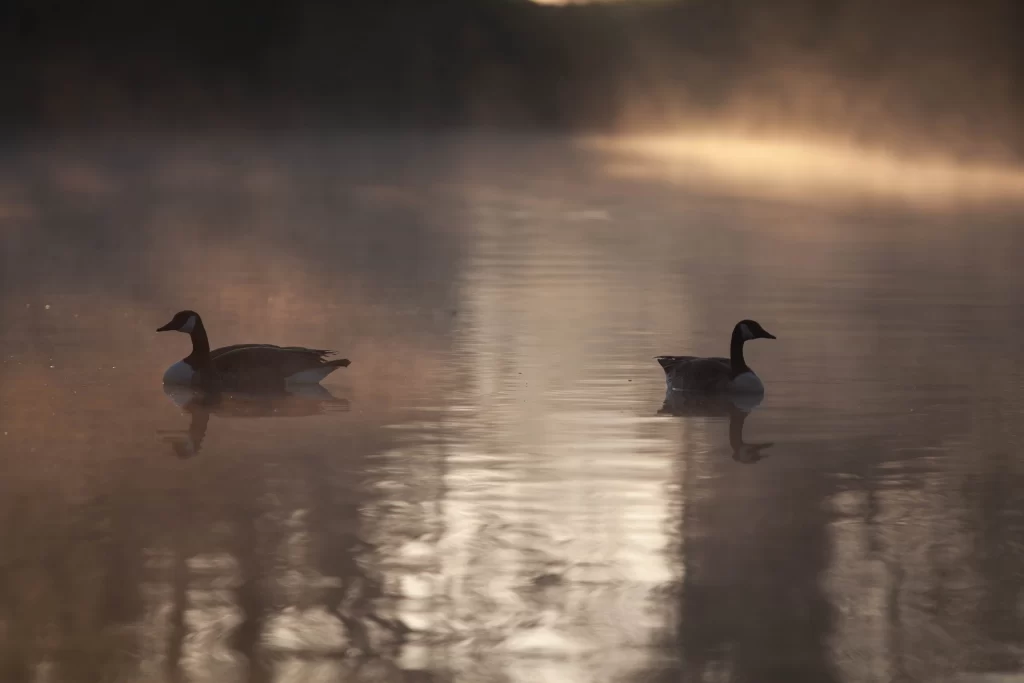
Yes, geese will certainly sleep on the water! Water is among the safest places for a goose to sleep, as this habitat keeps them safe from most predators. Now, geese will only sleep on flowing water systems like rivers or creeks, as these habitats can be treacherous locations in which to sleep.
Although birds like Canada Geese are happy to sleep on water, they often prefer to sleep in grassy or open areas adjacent to water. Sleeping in such places allows geese to enjoy a stable place to rest. Moreover, areas adjacent to water are often optimal goose sleeping spots, as these birds can quickly fly into the water if they need to evade a predator.
Do Geese Sleep With One Eye Open?
If you’ve ever watched a sleeping goose, you may notice that these birds suddenly open their eyes while they’re resting. Therefore, do geese sleep with one eye open?
No, geese do not sleep with one eye open. Instead, these birds may tuck their heads into their shoulder feathers and intermittently open their eye. This is a strategy used by these birds to avoid becoming a meal for potential predators. Geese may open an eye every few minutes to check for danger, and this rate increases if birds are uneasy about something.
Do Geese Sleep On One Leg?
Those who are familiar with geese know that it’s no secret that a goose sleeping commonly stands on one leg. This behavior can be observed in other bird species such as seagulls, but why do geese sleep on one leg?
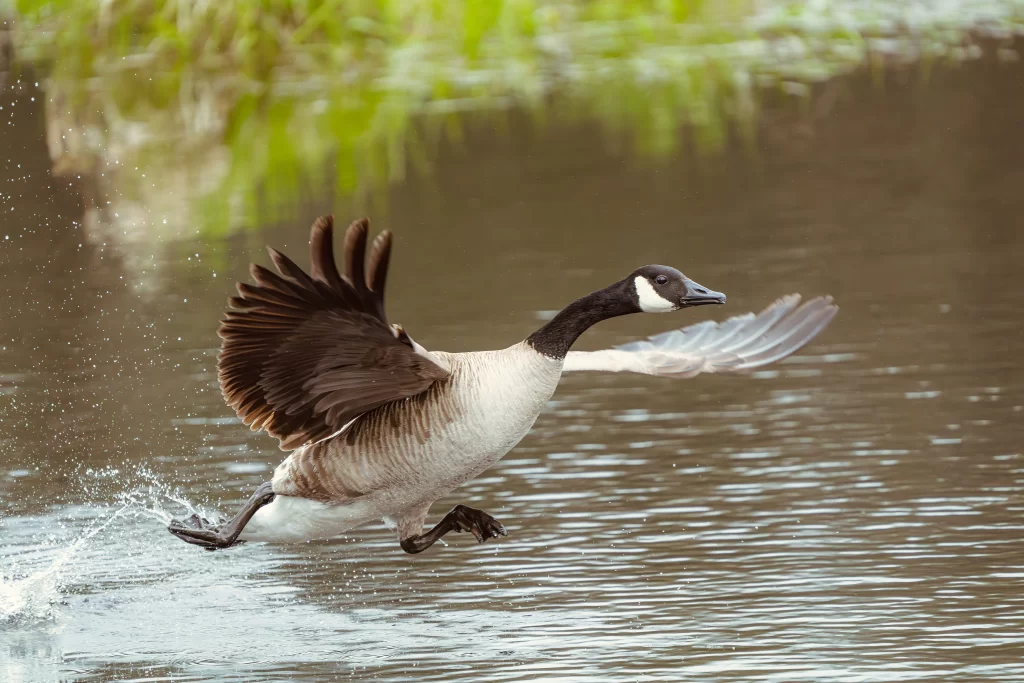
There may be several reasons that explain why a goose might choose to sleep on one leg, but the most common reason has to do with regulating their warmth. While geese have feathers that cover most of their bodies, their legs are not covered in this warm, insulating material. Instead, their legs are exposed to the environment and susceptible to becoming cold.
Therefore, it makes sense that geese would stand on one leg while sleeping to reduce their heat loss. Such behavior helps geese to minimize their heat loss during cold weather. An additional reason why a goose may stand on one leg may simply be because such behavior is comfortable for these birds.

